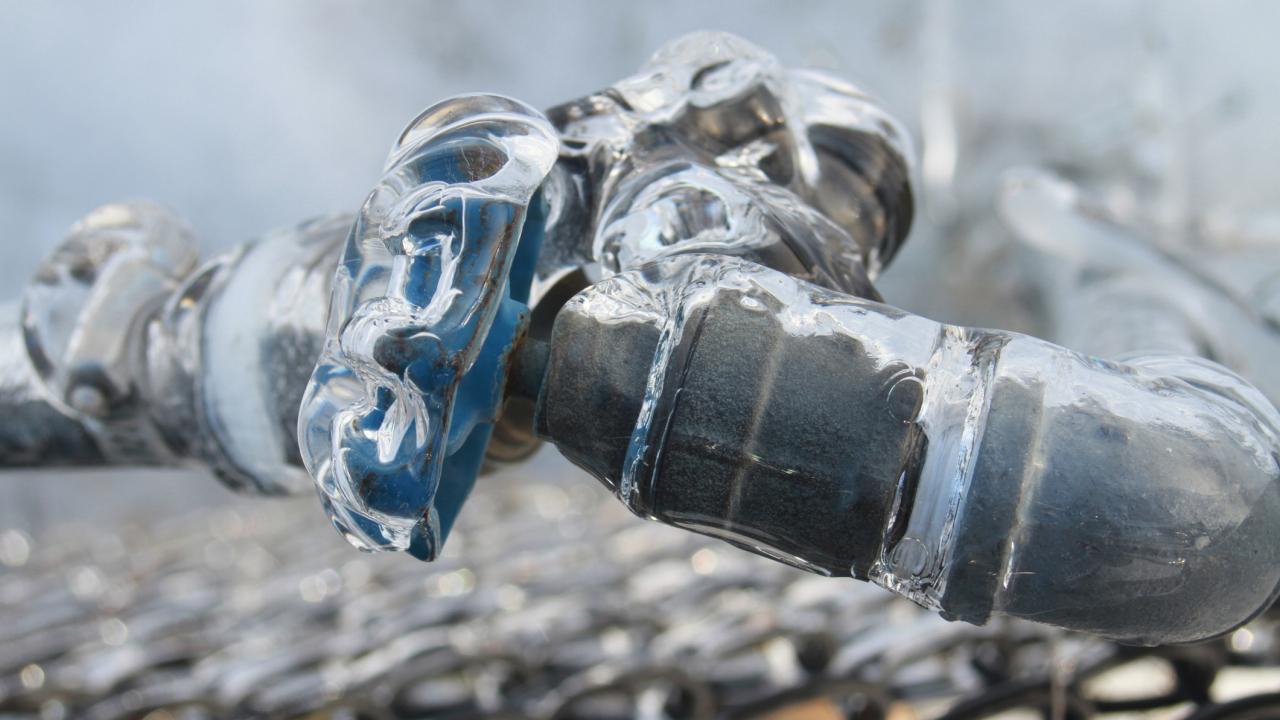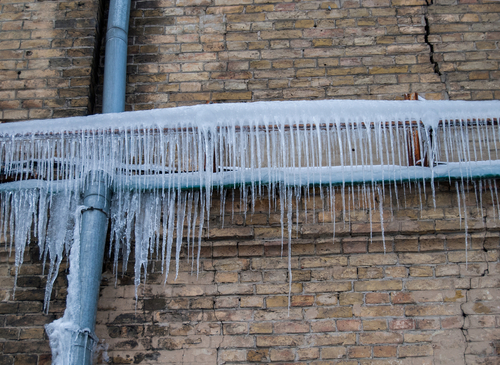Listed here down the page you can discover some quality resources around Prevent Frozen Pipes .

Winter can wreak havoc on your plumbing, especially by freezing pipelines. Below's just how to prevent it from happening and what to do if it does.
Introduction
As temperatures decrease, the danger of frozen pipes boosts, potentially resulting in expensive repair services and water damage. Comprehending how to prevent frozen pipelines is critical for home owners in cold climates.
Prevention Tips
Protecting prone pipelines
Cover pipelines in insulation sleeves or make use of heat tape to protect them from freezing temperatures. Focus on pipes in unheated or outside areas of the home.
Heating techniques
Keep interior spaces appropriately warmed, especially areas with plumbing. Open up cabinet doors to enable cozy air to circulate around pipes under sinks.
Exactly how to recognize icy pipelines
Seek decreased water flow from taps, uncommon odors or noises from pipelines, and visible frost on revealed pipes.
Long-Term Solutions
Architectural modifications
Take into consideration rerouting pipelines far from exterior walls or unheated areas. Add extra insulation to attics, basements, and crawl spaces.
Upgrading insulation
Purchase top notch insulation for pipelines, attic rooms, and wall surfaces. Appropriate insulation assists preserve consistent temperatures and reduces the risk of icy pipelines.
Securing Outside Plumbing
Yard pipes and outside faucets
Separate and drain pipes garden tubes prior to winter season. Install frost-proof faucets or cover outdoor taps with protected caps.
Understanding Icy Pipes
What creates pipes to ice up?
Pipes freeze when exposed to temperatures below 32 ° F (0 ° C) for prolonged periods. As water inside the pipes freezes, it expands, putting pressure on the pipe walls and possibly creating them to break.
Threats and problems
Frozen pipes can lead to water supply disruptions, residential or commercial property damages, and pricey fixings. Ruptured pipelines can flood homes and create comprehensive structural damage.
Indications of Frozen Piping
Recognizing icy pipelines early can avoid them from rupturing.
What to Do If Your Pipelines Freeze
Immediate actions to take
If you think frozen pipelines, maintain faucets available to ease pressure as the ice melts. Make use of a hairdryer or towels taken in hot water to thaw pipes gradually.
Final thought
Avoiding frozen pipelines needs proactive actions and quick responses. By recognizing the causes, indicators, and preventive measures, homeowners can secure their plumbing throughout winter.
Helpful Tips to Prevent Frozen Pipes this Winter
UNDERSTANDING THE BASICS: WHY PIPES FREEZE AND WHY IT’S A PROBLEM
Water freezing inside pipes is common during the winter months, but understanding why pipes freeze, and the potential problems it can cause is crucial in preventing such incidents. This section will delve into the basics of why pipes freeze and the associated problems that may arise.
THE SCIENCE BEHIND FROZEN PIPES
When water reaches freezing temperatures, it undergoes a physical transformation and solidifies into ice. This expansion of water as it freezes is the primary reason pipes can burst. As the water inside the pipe freezes, it expands, creating immense pressure on the walls. If the pressure becomes too great, the pipe can crack or rupture, leading to leaks and water damage.
FACTORS THAT CONTRIBUTE TO PIPE FREEZING
Low Temperatures: Extremely cold weather, especially below freezing, increases the risk of pipes freezing. Uninsulated or Poorly Insulated Pipes: Pipes located in unheated areas, such as basements, crawl spaces, or attics, are more prone to freezing. Insufficient insulation or lack of insulation altogether exacerbates the problem. Exterior Wall Exposure: Pipes running along exterior walls are susceptible to freezing as they encounter colder temperatures outside. Lack of Heating or Temperature Regulation: Inadequate heating or inconsistent temperature control in your home can contribute to frozen pipes. PROBLEMS CAUSED BY FROZEN PIPES
- Pipe Bursting: As mentioned earlier, the expansion of water as it freezes can cause pipes to burst, resulting in significant water damage.
- Water Damage: When pipes burst, it can lead to flooding and water damage to your property, including walls, ceilings, flooring, and personal belongings.
- Structural Damage: Prolonged exposure to water from burst pipes can compromise the structural integrity of your home, leading to costly repairs.
- Mold and Mildew Growth: Excess moisture from water damage can create a favorable environment for mold and mildew growth, posing health risks to occupants.
- Disrupted Water Supply: Frozen pipes can also result in a complete or partial loss of water supply until the issue is resolved.
WHY CERTAIN PIPES ARE MORE PRONE TO FREEZING
- Location: Pipes located in unheated or poorly insulated areas, such as basements, crawl spaces, attics, or exterior walls, are at higher risk of freezing.
- Exterior Pipes: Outdoor pipes, such as those used for irrigation or exposed plumbing, are particularly vulnerable to freezing as they are directly exposed to the elements.
- Supply Lines: Pipes that carry water from the main water supply into your home, including the main water line, are critical to protect as freezing in these lines can affect your entire plumbing system.
- Underground Pipes: Pipes buried underground, such as those connected to sprinkler systems or outdoor faucets, can be susceptible to freezing if not properly insulated.
https://busybusy.com/blog/helpful-tips-to-prevent-frozen-pipes-this-winter/

I'm very focused on Prevent Frozen Pipes and I am assuming you appreciated our article. In case you enjoyed our article kindly remember to share it. Thanks a bunch for being here. Kindly come visit our site back soon.
Click For More Info